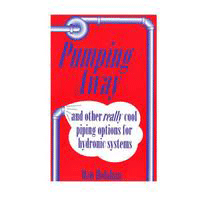
|
As a business leader, you’ve worked hard to grow your company, overcoming tremendous challenges and managing many risks.
You’ve outgrown your current ERP and are ready to implement a new one so you can take the business to the next level. Great! But are you aware of what implementing a new ERP will mean to your business? If you’re like most business leaders, the answer is no. Unless you’ve gone through a major ERP transformation firsthand, you are more than likely underestimating the impact it will have on your employees, company culture and bottom line. Many implementations fail, not because the company didn’t assign competent technology and functional resources, but because it failed to anticipate and manage the massive changes that such an undertaking brought to the business.
By starting the process of selecting and implementing a new ERP, you are committing to the investment of hundreds of thousands or millions of hard-earned dollars, disrupting your business and stressing out your employees for a prolonged period of time. And when things get tough, inevitably your customers also will find out, which can impact sales. If you are willing to undertake all these risks, wouldn’t you want to go into it with eyes wide-open and be as prepared as possible? Unfortunately some companies choose to proceed without a reality check and end up with a failed implementation, budget overruns, unhappy investors and disheartened employees.
So what are some basic gut checks you can do to determine if you and your organization truly are ready for such an undertaking? Here are some fundamental questions you should ask yourself and your executive team. The time you invest doing so could save you a lot of money, heartache and possibly careers down the road.
Who owns the ERP selection and implementation: The business or IT?If you answered IT, you’re on the wrong path. IT has no need for an ERP system; your business does. An ERP supports your operations, sales, purchasing, accounting and other functions, but not IT. ERP selection and implementation should be done primarily by the business for the business. IT’s role is strictly to own the technology aspect of the ERP and provide support after it goes live.
Will we make our ERP selection based on a detailed list of business process requirements?Hopefully your response is yes. Many executives make the fatal mistake of bypassing a thorough selection process and instead going with an ERP that someone recommended or they used at a prior company. No two companies, even two that are in the same industry, sell the same products and are of similar size, necessarily match up as well with the same ERP. Each company has its own DNA. Documenting and analyzing your current business processes teaches you things about your business that you did not know and allows you to define what you really need in a new ERP. Evaluate all viable ERP vendors against your requirements to find the one that comes closest to your current business processes.
Will we hire outside consultants to implement the ERP or go strictly with company employees?Neither. You need both consultants and employees, and tilting the scales entirely one way or the other drastically increases the odds of making the wrong selection or a failed implementation. ERP consultants do this type of work for a living. They’ve been through many scenarios in the past and are in tune with the hidden factors outside of the ERP itself that can spell the difference between success and failure.
However, they don’t know your business as well as your seasoned employees do. There are nuances to your customer relationships, how you buy inventory, how you manage freight, etc., that are unique to your company. Consultants have not had the multiyear exposure to these nuances. This is why having employees on the selection/implementation team is an absolute must. They know your culture, they know the “secret sauce” to the company’s success and they know your business processes best. With guidance from consultants, your employees can be a conduit for infusing existing processes with industry-best practices and end up not only driving a successful implementation, but also making the company better in the process.
Are we willing to commit our best employees to the cause?Picking the best team is hard. Remaining steadfast to leaving them committed to the project and not sucked back into the business is even harder. The best individuals for the team are often your most experienced and in-demand employees. Therefore plucking them away from the business for an extended period of time will come at a real cost to the business.
You’ll be tested on this time and time again during selection and implementation. And their role won’t end after go-live. By then they’ve become your ERP gurus and other employees will seek their assistance on an ongoing basis. Give a lot of thought to whether or not you can remain committed to the team for the long haul. If you can, select a team that not only represents all functional areas, but one that also represents your business generationally. It is still common in distribution and manufacturing companies to have 20-plus-year veterans of the company. The team you put together needs to blend the vast experience of the older generation with the inventiveness and tech-savvy of the younger generation.
Are we – and will we continue to be – wholeheartedly behind this undertaking?
ERP implementation is no walk in the park. It is hard work, it will challenge the way you currently do business, it will expose long-standing organizational and process issues that you’ll be forced to deal with, and it will push every single employee – from staff to senior executive level – to change. There will be tremendous resistance to change no matter how open to change you believe your company is. An investment without the unanimous and continuous backing of the company’s senior leaders is an investment too risky to make.
Are we willing to invest generously in employee ERP training?Too many companies do everything right with their ERP selection and implementation and then drop the ball when they get to training. They’ve invested millions in the project so far, but for various reasons they feel that investing in training is frivolous and their employees should just accept the new system and run with it. An ERP is a lot more than just a system, and its impact goes beyond just the keys you press on the keyboard.
It demands that your employees do their jobs differently, which means they now have to think differently than they did all the years they were on the legacy system. This is a big deal and it is the company’s responsibility to make them as prepared as possible. Don’t skimp on classroom-style training away from branches. Fly employees into a central location for training. Not only will it ensure everyone learns the same way and with the same quality, but it also enables your employees from different branches to meet one another, bond and share best practices. The expense is worth it.
A new ERP has the power to take your business to the next level, and when you’ve outgrown your current one, it is an investment that will pay dividends for many years to come. If you do your homework upfront to select the right system and ensure the right commitment, mindset and team is in place, the ERP you implement will ultimately enable you to run a more efficient operation, optimize your inventory, more tightly manage company finances and gain a leg up on the competition.
Author bio: Navid Gardooni is the founder and managing partner at ALN Partners LLC (www.alnpartners.com), a global IT advisory firm that specializes in helping distribution executives get the most out of their IT investments, including new ERP readiness analysis, selection and implementation. He can be reached at 832/704-3346 or navid.gardooni@alnpartners.com.









